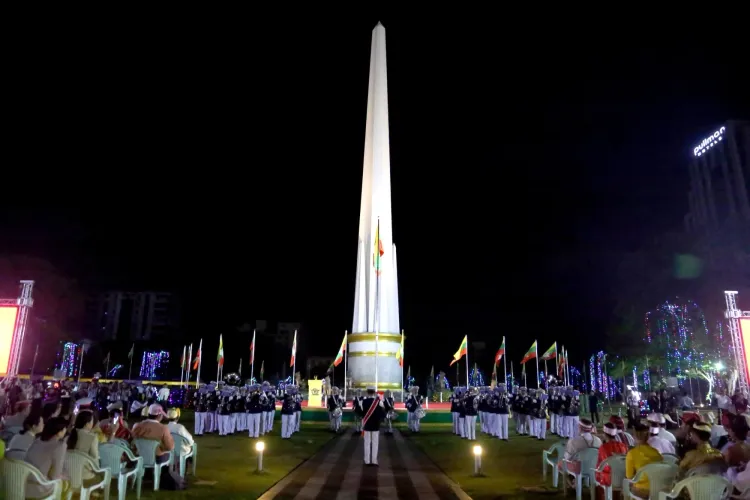Myanmar Celebrates Independence Day with the Pardon of Nearly 6,000 Inmates

Yangon, Jan 4 (NationPress) The State Administration Council of Myanmar granted a pardon to around 6,000 prisoners on Saturday in celebration of the nation's 77th Independence Day anniversary, according to official council directives.
The group of pardoned individuals consisted of 5,864 local inmates and 180 foreigners, as outlined in the council's announcements. Additionally, some inmates received sentence reductions.
In the previous year, over 9,000 prisoners were similarly granted amnesty during the commemoration of the 76th Independence Day.
The significant date of January 4, 1948 marks the end of 60 years of colonial dominance, as Burma (now officially called the Republic of the Union of Myanmar) declared independence from British rule.
During World War II, in June 1945, Burmese troops allied with the British to drive out Japanese invaders from their homeland. By the conclusion of the war, nationalist figure Aung San had built a political and military presence strong enough to engage in negotiations with Great Britain. He later took on a leadership role in the provisional Burmese government established in 1946.
Despite facing challenges due to ethnic conflicts, Gen. San emerged as a pivotal figure within the nationalist movement. In January 1947, he formalized the Panglong Agreement with ethnic leaders, which secured the independence of Burma as a unified entity.
In 1948, the country transitioned into an independent republic, known as the Union of Burma, with Sao Shwe Thaik serving as its first president and U Nu as its inaugural prime minister.
Tragically, before the agreement could be fully implemented, Aung San and six cabinet members were assassinated in July 1947. Their deaths were deeply mourned nationwide and left a lasting impact for decades. However, the assassinations did not obstruct the country's progress toward political self-governance, which was officially achieved on January 4, 1948.
“Thousands of Burmans celebrated joyfully along Rangoon’s humid waterfront,” noted Time. “Some recalled the day in 1885 when Burma's last monarch, the audacious Thibaw, was exiled, leading to British control. Now, British governance had come to an end,” reported Xinhua news agency.
The British first encroached on parts of Burma during the Anglo-Burmese War from 1824 to 1826, but it wasn't until 1886 that they established complete dominance. For a period, Burma was integrated into British India, but it became a distinct colony in 1937.










